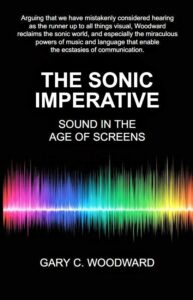Very few male faculty wear bow ties. For the record, in a long career I don’t think I have known a colleague who even owns one. Somehow this visual cliché holds on as the marker of a fusty pedant.
Rarely has a workplace drama taken a look at what it takes to manage a university department. Netflix’ new mini-series The Chair doesn’t necessarily change that, but it does offer a wry glance at a new English department chairperson struggling to thrive at an old university. As in many schools, she is a faculty member elected by her colleagues to serve a set term as the chairperson. In many circumstances it is considered less an honor than a sentence. At least that’s my impression, having done time in the position.
Since there are likely to be few murders, chase sequences or last-minute interventions from a superhuman savior, any reality-based series about academe is going to have limited appeal. Luckily, fools on campuses can always enliven the atmosphere. There are no penalties if you are a tenured fool.
The show deserves credit for at least suggesting the pressures facing a department head in these tortured times. Few actors could probably match Sandra Oh’s display of the gut-punch worry that comes with the position. As the first of the six half hour series opens, she has just been elected by her department to juggle a dean’s demands with those of her colleagues. That’s always a challenge, because–while deans want change–faculty have little interest in altering what they have always done. For the sake of a plot point, we also get a one younger faculty member who recently suffered the death of his wife, leaving him utterly incapable of keeping things together. He can’t seem to get to class on time, and a classroom provocation of a fake Nazi salute has been turned into a visual meme that puts him on course for trouble.
Even with this rare bird of a subject, the series is still filled with movie clichés about how university faculties do their work. Here’s a short list of tropes that almost always show up in depictions of this world:
- Campus offices are richly paneled spaces of dark oak, with cozy adornments such as stained glass windows. Hollywood’s version of a chairperson’s office usually looks to me like a fantasy tasting room at an upscale winery. In truth, the offices of chairpersons usually resemble what you might find for mid-level staffer at a company. Aside from the avalanche of books in the space, the only authentic touch in Chairperson Ji-Yoo Kim’s posh office is her chair. It’s broken.
- Mansplaining is alive and well. This is as common as it is accurate; inner-directed males are attracted to years of mostly solo scholarship, coming to life when anyone hints that they want to hear about it. Though women make up almost half of all tenure track faculty in the United States, their pay still lags. The show makes the point that many women staffers know that this is not always friendly turf. A smaller stereotype also caught my eye in one scene. Very few male faculty wear bow ties. A mostly clean shirt is usually as good as it gets. For the record, in a long career I don’t think I have known a colleague who even owns a bow tie. Somehow this visual cliché holds on as an easy marker for a fusty pedant.
- Professors can be remarkably inward-looking creatures, focused on their narrow and seemingly irrelevant domains. This cliché of inwardness is true and easily satirized. Actress Holland Taylor’s character is purposely made to seem less relevant in just this way. A Chaucer scholar, her work feeds the easy impression that she is not only useless in these times, but also nearly old as the Fourteenth Century poet she champions. But that judgment does her and her subject a disservice. Taylor’s Professor Hambling is played as smart, observant, and eager to take her students into a world they do not know. Though she is written to be easily dismissed, Hambling’s work is representative of the serious business of the humanities to lead young people into realms of human experience beyond their limited digital horizons. (Incidentally, her forced move to a basement office under a gym is not so far fetched. I once had to teach in a racquetball court: the equivalent of lecturing inside of a large water tank. It’s hard not to take these kinds of things personally.)
- Students prefer younger faculty while older professors go begging for students. While this can be true if a senior faculty member stays too long, many older teachers are productive and effective. I’ve witnessed many classes taught be senior scholars who had also become master teachers. Actor Bob Balaban plays old Professor Rentz, whose lecture notes have yellowed with age. No harm there, at least in the humanities; good lectures are precious things to amend rather than discard. But the script calls for him to be a drone in the classroom, discussing the work of Herman Melville with constant reference to his notes. Against the trendier attitude of a younger colleague, he doesn’t want to entertain his students’ interest in Melville as a person; Rentz wants to focus on his work.
In many cases older faculty may have the advantage of leading guided conversations with their students about a subject. I was a terrible teacher when I started as a green doctoral candidate at Pitt (in the same neighborhood where The Chair was filmed), not really comfortable to relax and engage with my new students. As a new faculty member I was much more tied to notes than in later years, when teaching became more of a transactional experience. My impression is that some college teachers with limited experience can get tied into knots especially with wordy Power Point slides.
- Humanities departments always seem to have a few free spirits (or, if you wish, some complete jerks). These are often men who have carried youthful rebellion into middle age without penalty, and continue act it out as a badge of honor. They do indeed make life tougher for a chair, who must represent the interests of the faculty, but also needs to be responsive to the objectives of administrators.
Hints at the flashpoints of all these these tensions are raised in the series: including teaching loads, “dead wood” instructors, enrollment challenges, and becoming more “efficient” by filling more classroom seats. A class of just eight can be expensive. Better to have 25 students or—at some bigger universities that slight undergraduates—maybe as many as 300.
- Deans are usually in charge. Yes and no. This looks truer than it usually is, especially at more traditional institutions that still hold on to the idea of “faculty governance.” Most faculty don’t want to become deans. And they would prefer to not have to pay much attention to them as well. Actor David Morse seemed to play it about right as the luckless administrator demanding more from Professor Oh. Deans use the carrot of money and the stick of cuts in staffing and budgets. True to form, she is weighed down by these pressures without having much success communicating them to her peers. Her departmental colleagues mostly see themselves as self-sustaining.
This are difficult times for the humanities, when the challenging times seem to demand more “relevance,” whatever that means. Can we afford to take the time to study Chaucer or Melville? Are Aristotle’s or Plato’s works important enough for what they may still tell us about enduring questions about the human condition?
Absolutely.
If we dismiss the challenges of educating the young in favor of pushing students to find routes to six-figure incomes, we could eventually inhabit a Taliban-like society with lots of rules but little interest in assessing their value in a free society.
![]()



